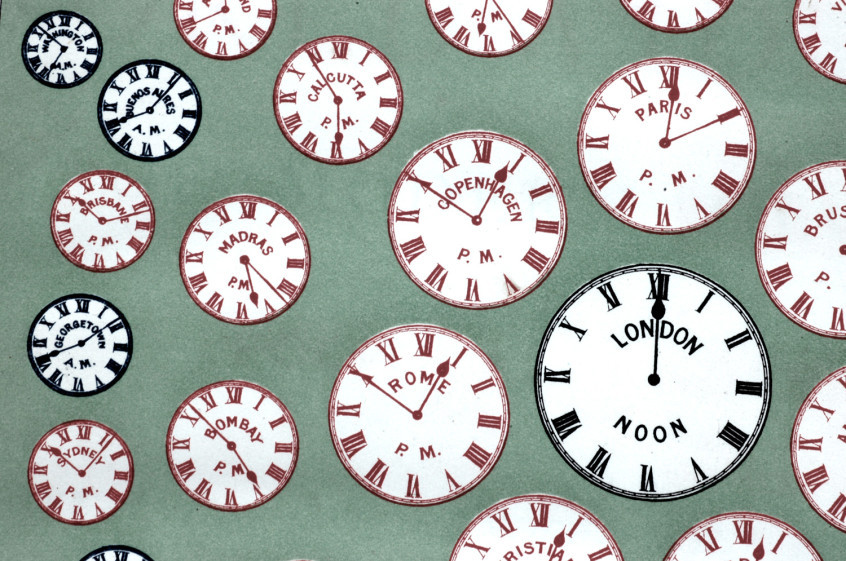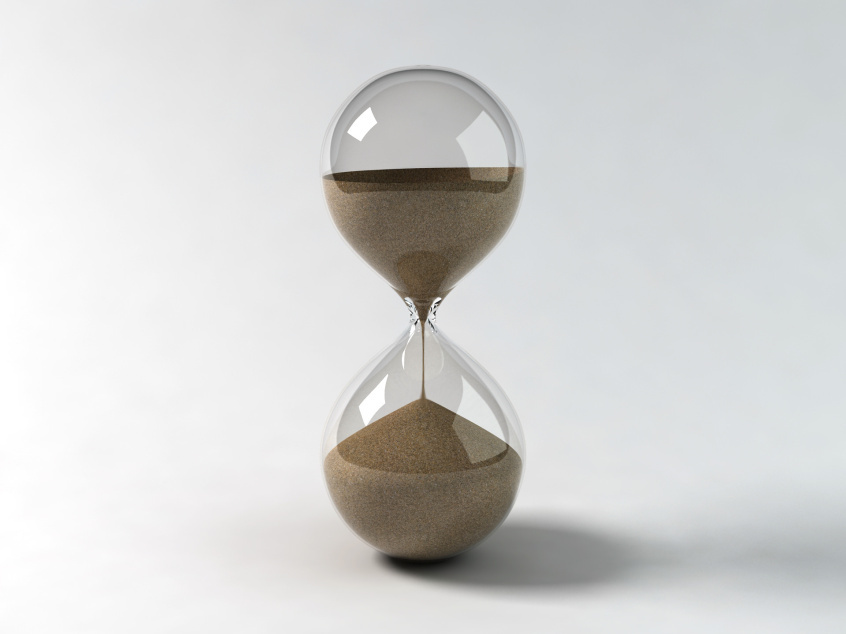10 lessons on how to increase productivity that I learned while working 90 hours a week for a month
- Transfer

How many hours per week do you spend on work? Around 40, right? And what do you think will happen if you work 90 hours a week?
Chris Bailey, the author of a Year of Productivity, decided to conduct such an experiment. What did this lead to? Read about the 10 lessons he learned in our translation of his article.
On average, people work about 40 hours a week or more.
On the surface there are two solutions to this problem:
1. Continue to work 40 hours a week and do not succeed.
2. Work more than 40 hours a week and try to increase productivity.
However, in practice this choice is not easy. Even though it seems that work over time will allow you to cope with a large number of tasks, this is obviously a wrong argument: not because you will have less time to rest and recover, but because in the long run labor productivity will significantly decrease . This has been proven many times, so the thesis is completely obvious.
I consider myself a person with high productivity, even though I once lounged a whole week. But now I can’t even remember when I was as unproductive as working 90 hours a week.
In February, I had an alternative: work 90 hours a week, so that the next work only 20 hours. I wanted to see how extreme work would affect my productivity. Next, there are 10 important lessons that I learned during the experiment.
1. Hours of work will increase your productivity, but only in the short term.
This is perhaps the most important lesson I learned for myself: you can achieve more by working irregularly, but it will not last long.
In the long run, hours of work lead to more procrastination and less productivity. It is for this reason that you begin to do less without even realizing it.
In fact, after a 40-hour work week, the study showed that marginal productivity begins to decline until “work within eight 60-hour work weeks equals that of eight 40-hour work weeks.” And if we work 70 or 80 hours in 7 days, the break-even point will be reached already in the third week.
When I worked 90 hours a week, I was able to do a lot, but only during the first days of the week; after which I did not have time or emotional energy to recover, so my productivity really fell. I was convinced that sleep and a visit to the gym every morning help me recover energy, but it still decreased by Wednesday-Thursday.
It is easy to deceive yourself that a long working week will make you more productive, in the end, this is what happens, but not for long. But personally, I believe that there are fundamental limits to overall productivity, and you can overcome them if you work smarter, and not more.
Most studies show that the optimal number of hours to work during the week is about 40. After my experiment, I tend to believe this.
2. If you are busy all the time, this does not mean that you have high productivity.
There is a big difference between employment and productivity, but it is sometimes very difficult to catch.
From my point of view, productivity does not depend on how much you work; it depends on how many things you complete. So, you can start to perform many tasks and not a single one of them can be completed within a week. For example, if you have a 60-hour work week, but you communicate with colleagues all the time, check your mail, perform secondary tasks all day, you will be much less productive than a person working 30 hours a week, but really involved in important processes .
Productivity is not how much you work during the day, but how much you do.
3. A sense of productivity does not mean its presence.
Even if you feel that you have high productivity, this does not mean that it is. In fact, sometimes everything is exactly the opposite:
• When you work in multitasking mode, you feel more productive than when you do one thing, but studies confirm again and again - this is not so;
• When you consume caffeine, you feel more productive as coffee affects the brain. However, the body gets used to caffeine, and this substance can reduce your productivity in solving creative problems;
• You feel more productive by checking your email 10 times per hour, instead of preparing a report, because you get feedback. But you are not paid for viewing mail, but paid for work and the achievement of certain results.
The same goes for continuous processing. I think that work for many hours makes you feel more productive, and you feel less guilty because you do not have time to complete all the work on time.
4. Plan your time when you are not busy with work.
I believe that planning time when you are not busy with work allows you to more effectively resolve the issue of quality of work, which allows you to work smarter, but not necessarily more. As a simple example, if you work as an accountant, you can engage in pencil sharpening for the whole day (or the modern equivalent by checking mail), or you might think for a short while abstracting from the routine and understand what exactly will bring the best result, and then do it this work.
Intellectual activity makes us more creative, concentrated, energetic, because it allows us to see the work from a bird's eye view. It allows you to see what you need to do differently in order to achieve more in less time. And although you may feel less productive, but, as in the example of multitasking, you will do better.
When I forced myself to work 90 hours a week, I constantly noticed that I was working less efficiently, doing nonsense, but I didn’t achieve significant results at the end of the day: I noticed all this after analyzing my work a week after the end of the experiment .
5. Each minute devoted to planning will save 5 minutes of work.
Here is my favorite productivity quote from Brian Tracy:
“Every minute dedicated to planning saves 10 minutes of work.”
I would argue about 10 minutes (I think a little less), but the principle is absolutely correct.
When all you do is work and you never devote time to planning, it’s hard to work smart. Even if you always work more than the rest, without working wisely, without performing extremely complex tasks, you will never reach the level of productivity of other people who can work half as much, but achieve the same results.
When you interrupt your work and plan your activities, you will become more focused, you will be able to direct your time and energy to several concentrated goals, achieving greater productivity.
6. To achieve more in less time, put in the plan a limited time to complete tasks.
Allocating a limited amount of time to complete tasks is a direct way to increase productivity. Want to catch more? Spend more energy on tasks.
My favorite way is to devote less time to tasks that I need to cope with.
The fewer days (hours) are allotted according to the plan for the task, the more you customize yourself, spend more time to do the work. And vice versa, if there is a lot of time, then a person can make decisions longer, sit idle.
In the process of the experiment, I had an alternative: work 90 hours one week, and the next only 20 hours.
It's funny, but when I only had 20 hours to complete the 40-hour tasks, I found ways to do more in less time. Since I had much less time than required, I had to use all the energy to achieve the goal.
The more you need to do, the more time you would seem to need to spend on work. This is what all people understand, and what, at first glance, seems right. But, as my experience has shown, the less time you devote to the task, the more you will do in this limited time.

7. Take care of your energy and do not forget to replenish its reserves.
As Brian Tracy, author of the fantastic book Eat This Frog, said, “if you want to stay happy and have high performance, take care of your energy and don't forget to replenish its reserves.” For example, when you have a lot to do and you only sleep for a couple of hours, the level of performance will decrease. But if you go to bed early and get enough sleep, then you can do your job faster.
Energy is the fuel that you burn throughout the day to do the job, and during the experiment I got rid of many things that charged me with energy, simply because I did not have time for them. And if you want to do more in less time, you need to think carefully about replenishing energy.

8. Processing will empty the supply of willpower.
Each time, forcing yourself to work when you don’t feel like it, you use a little willpower - a mental resource that can run out.
Forcing myself to work 90 hours a week, I spent a huge amount of mental resources, more than during any other experiments. This led to a number of negative consequences:
• I put off important matters more often than ever before: sometimes for 3-4 hours;
• My productivity fell on Wednesday and Thursday of my 90-hour work week, while the brain simply refused to do its job;
• I realized that I am concentrating on secondary, stupid tasks (checking Google Analytics, Twitter, email) instead of real work.
You can not force yourself to work 90 hours, but each time, forcing yourself to work more than necessary, you are depleting your willpower, which comes into confrontation with energy and motivation, the main components of productivity.
9. One of the worst (and least productive) things you can do is be dishonest with yourself.
The question I often want to write about on my site is the need to be honest with yourself, because any productivity tactic becomes useless if you lie to yourself. For example:
• Do you do what you need to do or just transfer it to later?
• Do you set high goals for yourself, and then drop them in a few weeks, or break them down into several stages and still fulfill them?
• Do you wake up the first time with the alarm clock or rearrange it 5 times before getting out of bed?
• Are you listening to your brain when he says that he is tired of work and wants to rest?
• Do you spend several hours in front of the TV, and then try to understand where the time has gone?
Throughout the experiment, the more I pressed on myself, trying to be productive, the less honest I was with myself. I tried to lull my vigilance, trying to be productive when I did not have the strength, which forced me to put things off, to look for excuses to do less today. Instead of being honest with myself and thinking about how much energy I spent, I put too much pressure on myself, and that reduced my productivity.

10. There are more important things in life than productivity.
Without a doubt, every second of work is a second that you have not spent on anything less important, but more beloved.
When I spent a little time with my girlfriend, working 90 hours a week, I felt much better. There are things on the list of obligations - important, but not urgent, and we most often refuse them in conditions of high employment. I face this as much as other people.
When you recycle, this extra time, which needs to be taken from somewhere, makes you give up simple things that give energy (for example, spending time with loved ones). As soon as you stop wasting time on things for the soul, you begin a deliberately losing battle, become irritable and less productive.
In particular, work for many hours in a row has demonstrated that it does not differ in productivity from a 40-hour work week (especially in the long run).
An important thing that can be done for productivity is to properly plan your activities. This will help replenish energy, work smarter, find interesting solutions, get rid of secondary tasks, and most importantly - control your work.
Good luck to you!
PS You want to read articles from the same author - we recommend “10 lessons that I learned after I started using my smartphone 60 minutes a day” or “Everything that is needed to develop“ dynamic thinking ” . ”
